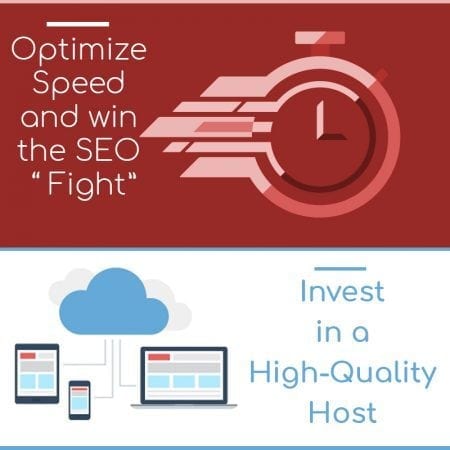 When you think of SEO you probably think about conducting keyword research, creating engaging content, and building links. However, speed optimization is equally as important, although it’s often overlooked. This is probably because this factor was only applied to desktop searches until recently. Recently, Google has changed all this with the announcement that speed will also be a factor for mobile search results soon. With this in mind, it’s time to get to work building a faster site that provides a better user experience so it’ll rank higher in the SERPs. For this, you’ll need some tips and tools.
When you think of SEO you probably think about conducting keyword research, creating engaging content, and building links. However, speed optimization is equally as important, although it’s often overlooked. This is probably because this factor was only applied to desktop searches until recently. Recently, Google has changed all this with the announcement that speed will also be a factor for mobile search results soon. With this in mind, it’s time to get to work building a faster site that provides a better user experience so it’ll rank higher in the SERPs. For this, you’ll need some tips and tools.
Establish a Baseline
Before you can start worrying about your page speed, you need to figure out how fast you’re currently performing. This is why Google has the PageSpeed Insights tool available. Not only will this tell you how fast your page is, but it also tells you how you can improve things. Armed with this information, you can get to work.
Make On-Site Improvements
There are some common speed optimization issues PageSpeed Insights identifies. These include:
- Full-resolution images: These take a long time to load and aren’t good for speed optimization nor are they necessary for most pages.
- Render-blocking CSS and JavaScript files: These keep your page from fully loading until they’re processed.
- Browser caching: This tells browsers how long they can store files so pages load quicker.
Compression: This the process of reducing the size of text-based files for faster load times.
Minifying HTML, CSS and JavaScript: This involves analyzing and removing unnecessary text or data while maintaining the page’s look. - Browsers load webpages in chunks: This means that most pages require several calls to the server. Make sure everything above the fold loads first.
Invest in a High-Quality Host
When you work to optimize your website for SEO purposes, you don’t want to then skimp on your hosting. Investing in premium, dedicated hosting with good hardware and up-to-date technology will also help make your site load faster. A few of the other issues you’ll need to address here include:
- Pages taking longer than 200 milliseconds to load require a reduction in server response time. The reasons for this slow of a response have to do with things like routing, file libraries, bad application logic and slow database queries. Exploring and correcting these issues yields speed optimization.
- A content display network (CDN) is a large network of servers that house your page files (e.g. text, graphics, scripts, video, downloadable objects, streaming media) for faster delivery. Make sure you have a CDN.
These are just a few of the hundreds of factors that determine how Google will rank your site. Taking the time to make sure that it loads quickly will create a strong foundation. Having the time and the resources to complete everything on this list right away is important. Since you probably have neither, you’ll need some help. ISEOU is here to help you make sure your site is ready when Google implements these changes so make sure you contact them today.

